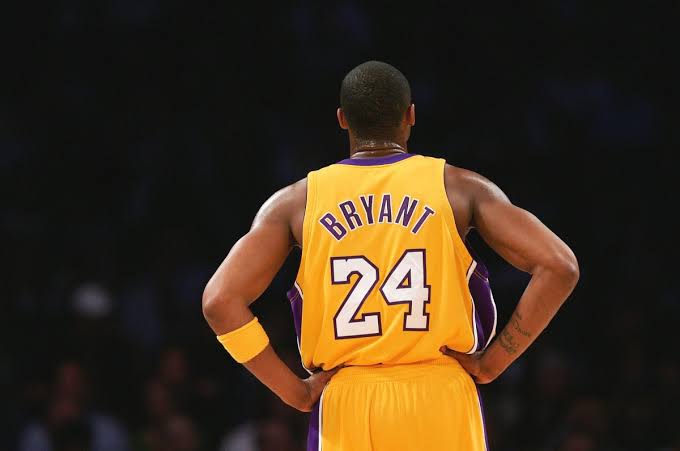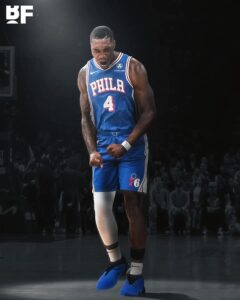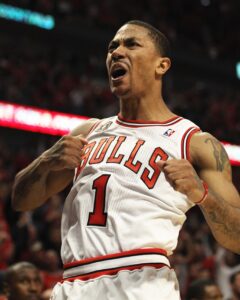
The death of Kobe Bryant in a tragic helicopter crash on January 26, 2020, sent shockwaves through the world of sports, and beyond. The untimely passing of the basketball legend, alongside his daughter Gianna and seven others, was an event that transcended sports, touching fans across generations and countries. For the Los Angeles Lakers, the organization that Kobe defined for two decades, his death not only triggered a profound sense of loss but also left lingering questions and controversies that continue to echo within the NBA community and the team itself.
Three years later, the controversy surrounding Bryant’s death remains raw. The fallout has not only emotionally affected the Lakers’ current roster but also cast a shadow on how the team navigates a future without the man who embodied its soul. The tragic nature of Bryant’s death, coupled with the ensuing legal battles, questions of safety, and the weight of his legacy, has left the Lakers grappling with a void that seems impossible to fill.
The Tragedy: A Day the Basketball World Stood Still
Kobe Bryant’s helicopter crash in Calabasas, California, was one of those moments that people remember with heartbreaking clarity. Bryant, who often commuted by helicopter to avoid the notorious Los Angeles traffic, was traveling with his 13-year-old daughter Gianna and other passengers to a youth basketball game when the aircraft went down in foggy conditions. The loss felt immeasurable.
For Lakers players, coaches, and fans, Bryant’s death was more than just the loss of an all-time great. It was the loss of a mentor, a brother, and a man who had dedicated his life to one franchise, making the purple and gold synonymous with his name. Bryant’s obsessive work ethic, competitive spirit, and five NBA championships with the Lakers earned him an eternal place in the hearts of fans, but now, his sudden death had left the team and the city of Los Angeles to mourn.
The controversy began immediately following the crash. Investigations into the causes of the accident led to speculation about pilot error, unsafe flying conditions, and whether Kobe’s preferred method of travel had ultimately contributed to his and Gianna’s deaths. For months, the debate raged over what could have been done to prevent the crash, and whether regulatory oversights played a role.
Legal Fallout and Lingering Questions
The legal ramifications following Bryant’s death further fueled the controversy. In the months after the crash, Bryant’s widow, Vanessa Bryant, filed lawsuits against Island Express Helicopters, the company that operated the flight, and the pilot’s estate, alleging negligence. She claimed that the pilot, Ara Zobayan, made critical errors in judgment, flying into dangerous weather conditions in violation of Federal Aviation Administration (FAA) rules. Meanwhile, the pilot’s defenders argued that the company’s safety protocols were inadequate and that Zobayan, a longtime friend and trusted pilot of Bryant, was placed in an impossible situation.
The legal battle was complicated further when it was revealed that first responders and law enforcement personnel had shared graphic photos of the crash site. Vanessa Bryant’s emotional testimony about the emotional distress these photos caused her and her family led to another lawsuit, this time against Los Angeles County. The controversy over privacy, respect for the deceased, and the ethics of those in charge of protecting crash sites became a critical part of the conversation, as Vanessa Bryant sought justice not just for Kobe and Gianna, but for the other families who lost loved ones.
As these lawsuits dragged on, the Lakers found themselves at the center of a storm, with Bryant’s tragic death still an unresolved wound. The franchise, known for its storied history, was now forced to navigate its identity without the towering presence of the player who had given them five titles and 20 years of brilliance. And with Bryant’s shadow still looming large, the pressure on the current team grew.
A Team and a City in Mourning
For the Lakers organization, Bryant’s death created a somber atmosphere, particularly for the players who had known him personally. LeBron James, who had taken the mantle as the team’s leader, was deeply affected. Only the night before the crash, LeBron had passed Kobe on the NBA’s all-time scoring list. The two had exchanged texts, and Bryant had congratulated James for continuing the Lakers’ legacy.
In the immediate aftermath of the crash, LeBron became the emotional leader of the team, delivering a heartfelt speech at the Lakers’ first game after Bryant’s passing. It was a moment of raw emotion, as players, fans, and staff tried to make sense of the loss of the man who had defined the franchise for so long. “Not forgotten. You’re with us,” James said, visibly shaken, while the entire Lakers team wore No. 8 and No. 24 jerseys in Kobe’s honor.
Bryant’s death served as a rallying cry for the Lakers that season, culminating in an emotional NBA Championship victory in the COVID-affected “bubble” environment. For the team, the title was seen as a tribute to Kobe’s legacy, with LeBron and Anthony Davis frequently referencing Bryant’s influence throughout their championship run. “Mamba Forever,” became their motto, as they dedicated the season to Bryant.
Yet, despite the emotional high of that championship, the Lakers soon faced the reality of moving forward without Kobe. The pressure to live up to Bryant’s legacy and honor his memory weighed heavily on the players, as the franchise struggled with inconsistency in the following seasons. The burden of upholding Kobe’s standard became a point of focus, with critics and fans questioning if the Lakers could ever find success again without the aura of Bryant hanging over the team.
The Lasting Impact on the Lakers
Kobe Bryant’s death has left an indelible mark on the Los Angeles Lakers. His absence is felt in every corner of the franchise, from the rafters where his jerseys hang to the practice court where players often reference his work ethic and commitment to greatness. Players like LeBron James and Anthony Davis, though superstars in their own right, still find themselves compared to Kobe’s towering legacy.
This weight of expectation has proven to be a double-edged sword. On one hand, Bryant’s “Mamba Mentality” continues to inspire current and future Lakers players to strive for greatness. On the other hand, the constant reminder of Kobe’s greatness serves as a benchmark that is almost impossible to reach. How can anyone, even the best, live up to the mythos of Kobe Bryant, a player whose untimely death has only elevated his legend?
Beyond the emotional and psychological toll, the Lakers have also faced practical challenges in navigating a post-Bryant era. With the team struggling to regain its championship form, questions persist about the direction of the franchise and whether the Lakers can find a path forward that doesn’t rely on constantly invoking the memory of their fallen star.
Conclusion: Living in Kobe’s Shadow
Three years after Kobe Bryant’s death, the Los Angeles Lakers and their fans are still coming to terms with his loss. The controversy surrounding the helicopter crash, the legal battles, and the pressure to uphold his legacy have all created an environment in which Kobe’s memory is both a source of inspiration and an emotional burden.
For the Lakers, the challenge now is to find a way to move forward without ever forgetting the man who gave everything to the franchise. Kobe Bryant’s death was a moment that rocked the world, but his legacy will forever be woven into the fabric of the Los Angeles Lakers. The team will never be the same without him, and in many ways, it’s unclear if they ever want to be.






